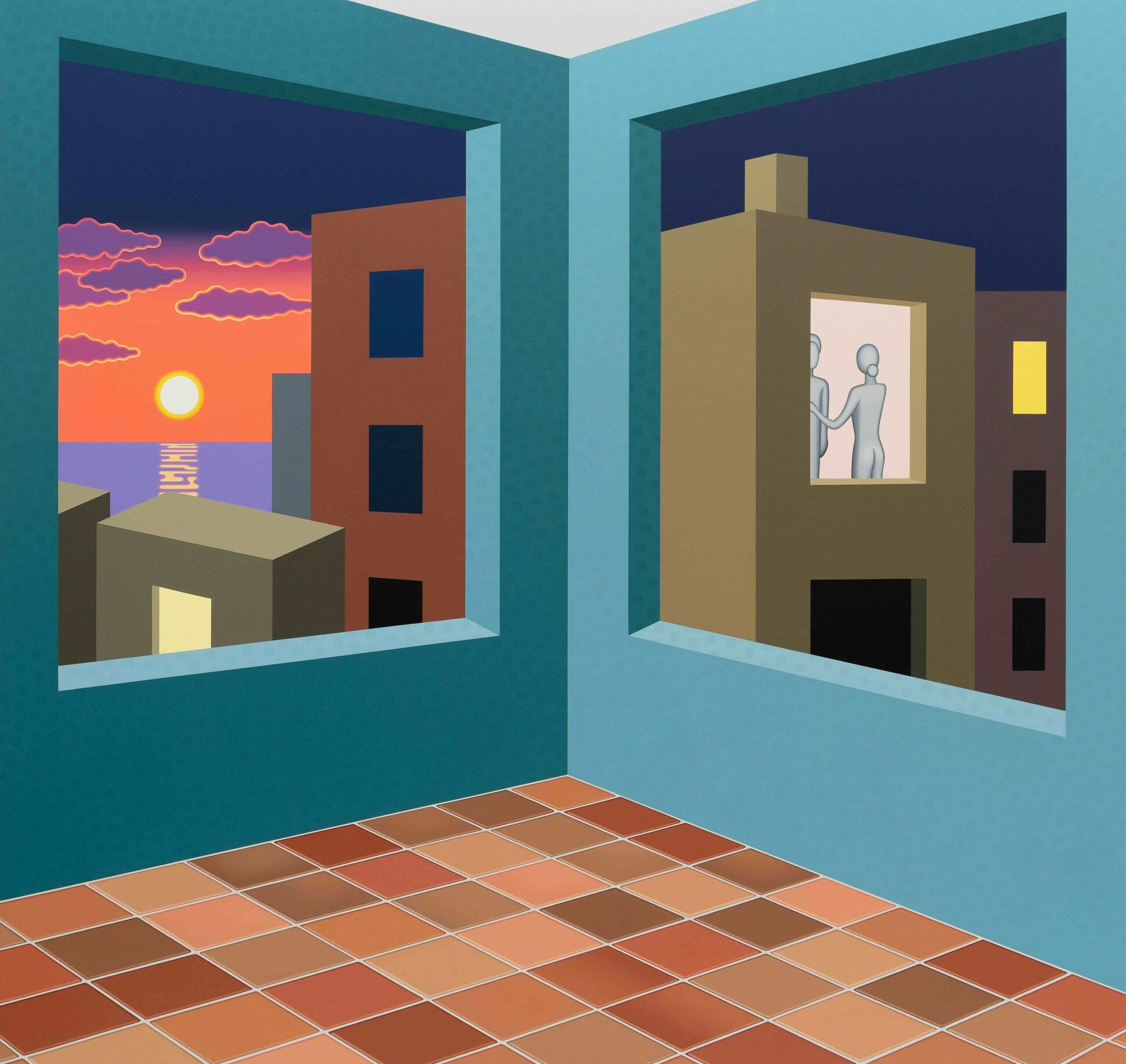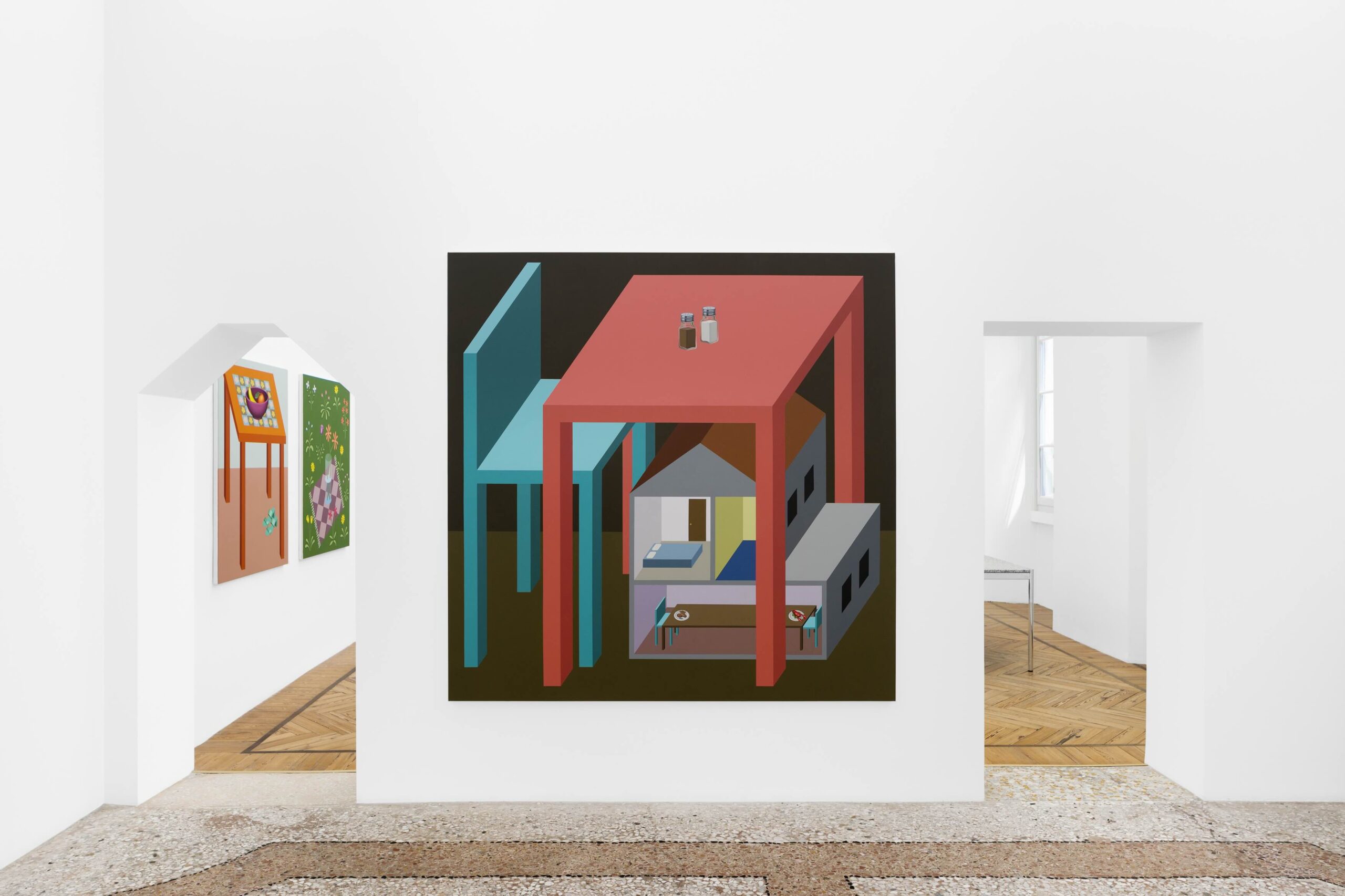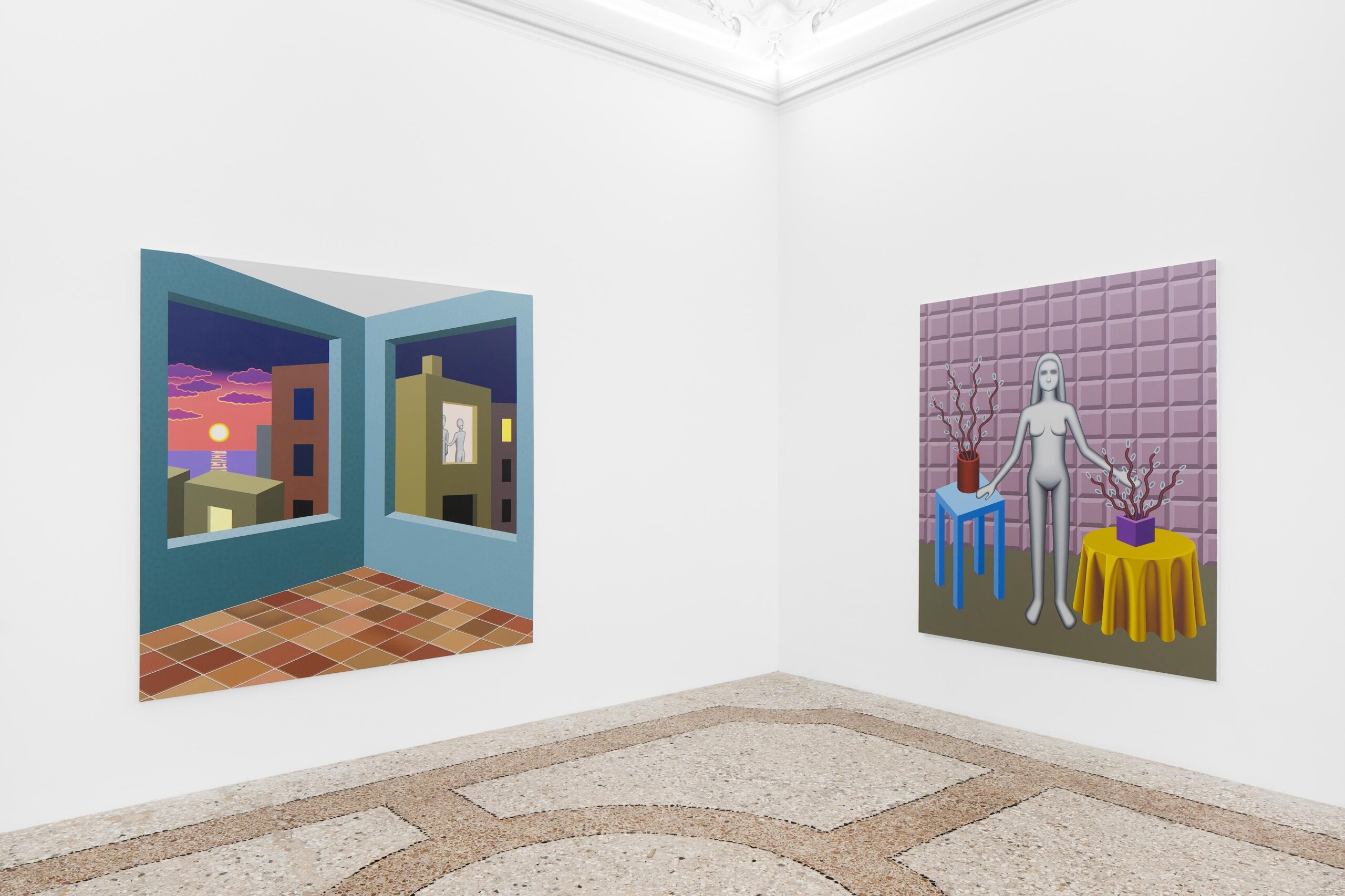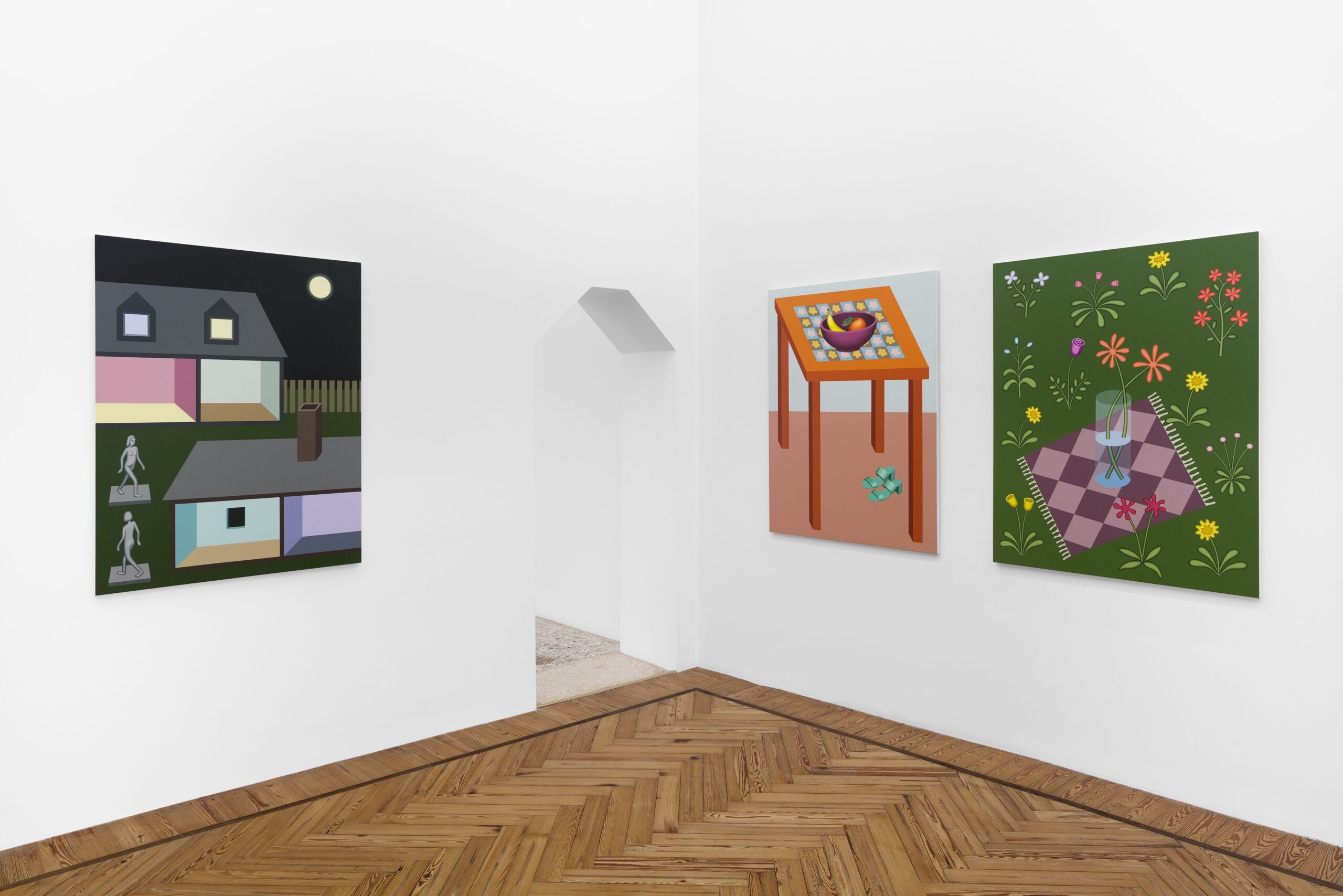Emily Ludwig Shaffer: Five Ways to See
Peres Projects, Milan
7 June – 23 August 2024
Through a new series of eight paintings, Emily Ludwig Shaffer utilizes her unique hard-edge aesthetic and architectural sense of composition to present the sensory potential of painting. The clarity of lines, the solidity of colors, the velvety layers of paint, and the imperceptible brushstrokes give shape to a singular interpretation of an art history trope: the pictorial and allegorical representation of the five senses. Although more indirectly, this new body of work also contributes to Shaffer’s ongoing reflection on how women occupy spaces, both concrete and symbolic. Art history and aesthetic judgment, subtly cited in Developing Taste, are intertwined with the hierarchies of the senses: strongly imbued with gender values, as argued by feminist theorists like Griselda Pollock and Julia Kristeva, these hierarchies have played a role in the gradual invisibility of women artists since the early Renaissance. Through the use of the senses, Shaffer, whose work often references arts and crafts traditionally associated with women, deepens her exploration of how women express themselves aesthetically and artistically, creating space for the sharing of new ways of seeing.
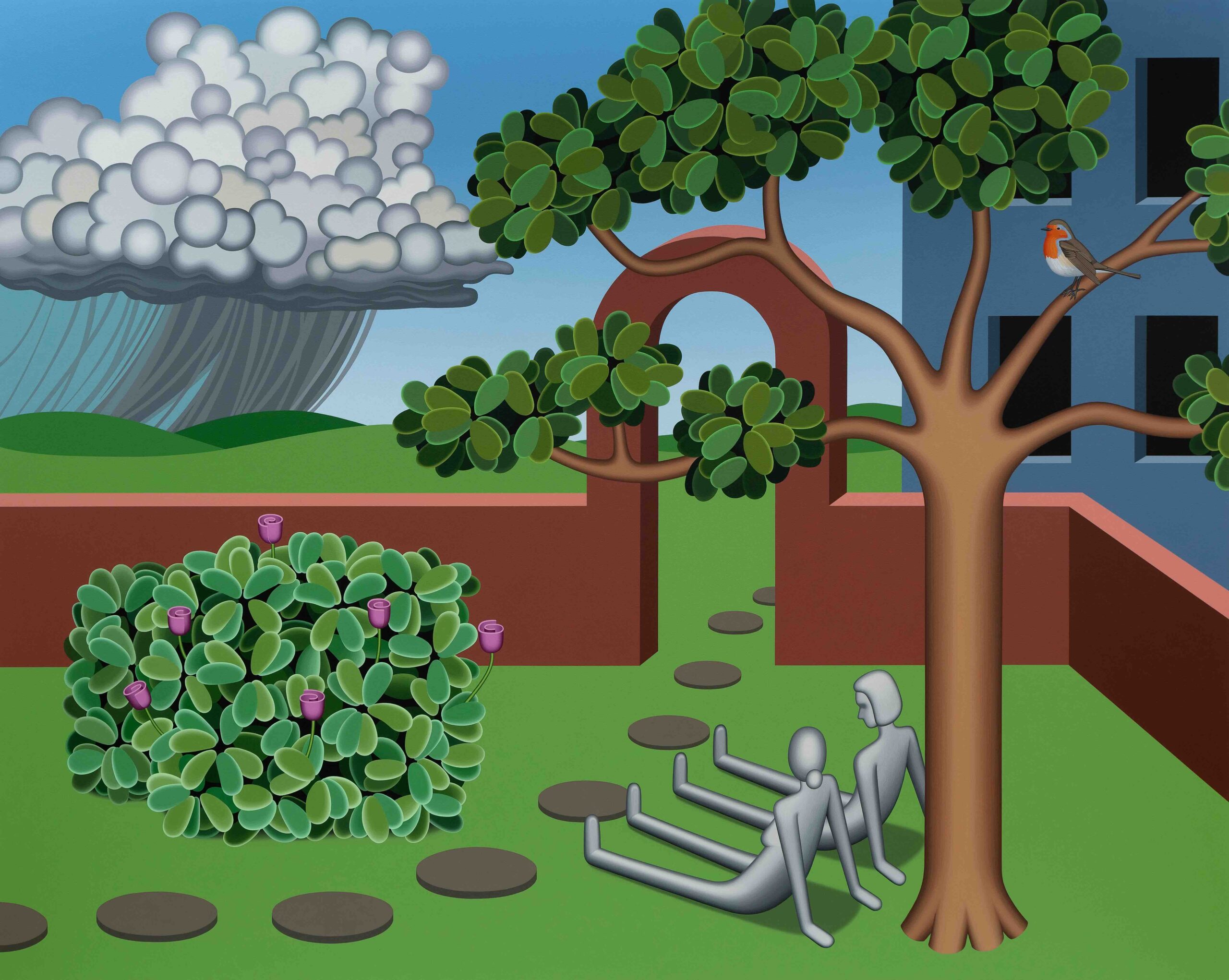
“The women in most of my paintings don’t have mouths. For me, that comes from this desire to have them be abstracted, more generic, and symbolic women’s forms as opposed to specific faces”.
Building on Shaffer’s extensive research into the relationship between bodies and space, Touch, Sound, Smell, Taste (all 2024) and Sight (2023) – five large-format paintings – constitute the core of the exhibition at Peres Projects in Milan. These works draw the viewer into domestic and semi-enclosed spaces that appear simultaneously illusionistic and surreal. Experimenting with different scales in Taste or material surfaces in Touch and Sight, the paintings engage the observer’s body, inviting them to come closer to observe the smallest details of the compositions or, conversely, to step back to appreciate the works in their entirety. More often than not, the paintings are populated by the typical stone figures, iconic of her production; however, even when they are uninhabited, the works are never uninhabited: a pair of shoes left under a table or a meal served in a miniature dining room act as substitutes for the absent bodies and as reference points for the viewer entering the artist’s imagination. While the smooth surfaces, sharp shapes, and axonometric structures bring her work closer to a modernist aesthetic and, to some extent, digital, Shaffer often explores pre-modern artistic and craft traditions. Five Ways to See draws inspiration from La Dame à la licorne (The Lady and the Unicorn, c. 1500): a late medieval polyptych tapestry depicting the five senses in the millefleur style, typical of 15th-century European tapestry art. The artist’s interest in medieval works is not new: Le Livre de la cité des dames (The Book of the City of Ladies, c. 1405) by Christine de Pizan, for example, inspired her 2022 solo exhibition in Berlin.
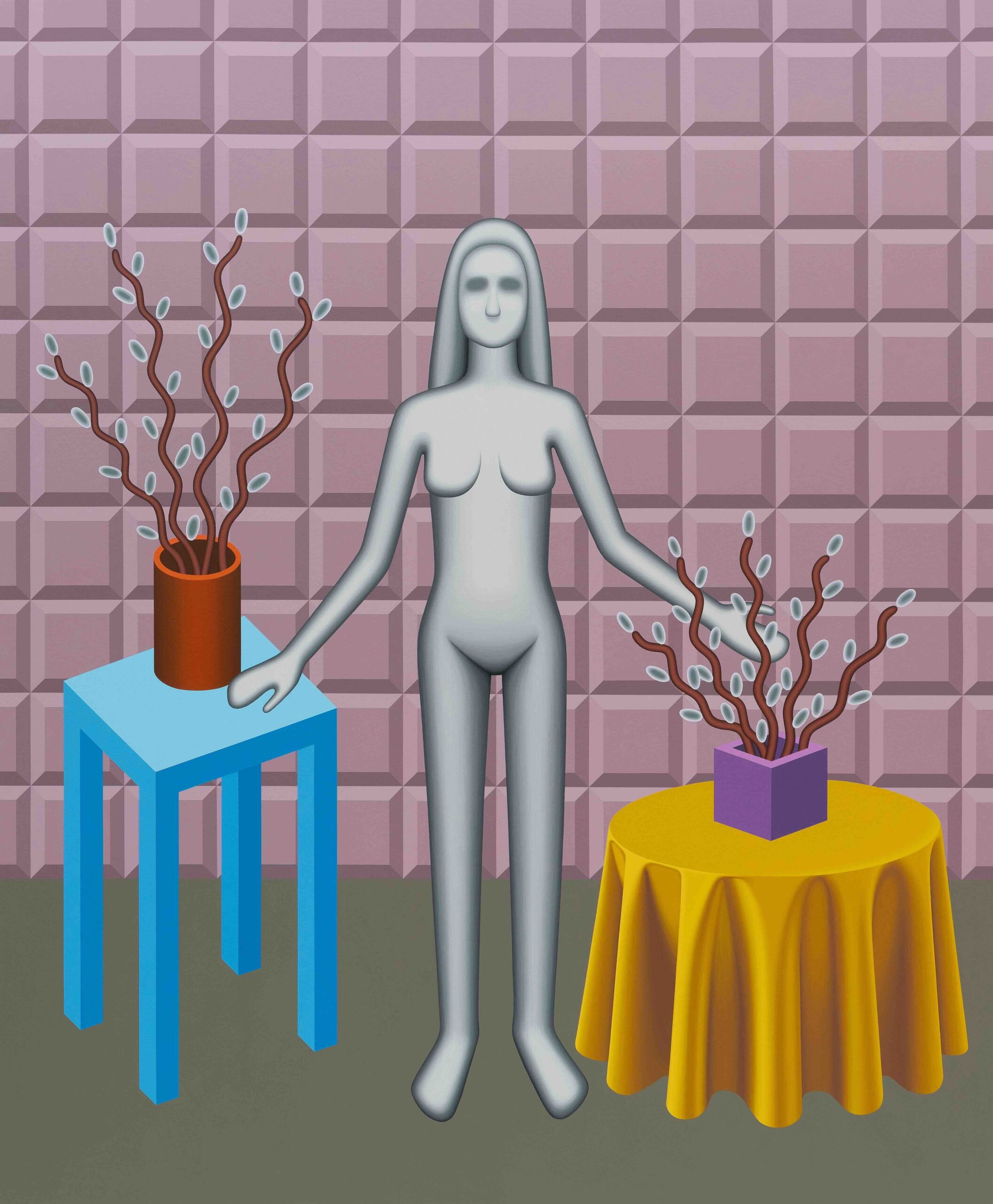
“For now, it feels important that if I am representing a figure, it is a woman’s form”.
These references inform paintings that challenge the rationalist approach to the world and its representation, for example through distorted perspectives, which find space in works full of mystery and ambiguity. Just as The Lady and the Unicorn includes a sixth enigmatic panel titled Mon seul désir (My only desire), which is believed to depict a sixth sense, Shaffer’s new series offers her interpretation of this additional sense through the works Millefleurs, The Neighbor’s Way, and Developing Taste (all from 2023). These three smaller paintings are extensions of the larger works and capture images that spontaneously emerged in the artist’s mind, showing her sense of intuition. Ultimately, Five Ways to See celebrates a multisensory, embodied, and subjective perception of the environment, drawing on Shaffer’s personal memories. One memory particularly dear to the artist is the concert of pounding rain and singing birds heard during a storm in England depicted in Sound. Intuitive and organic, the depiction of the senses is infused with playfulness, evident in works like Taste and The Neighbor’s Way, where architectural structures evoke those of a dollhouse. This connection with childhood is significant, as the artist describes how she rediscovered the world through the eyes and physical experiences of a child since becoming a mother in 2021. It is indeed through the body and senses that we gain the first knowledge of the world, and the exhibition invites reconnection with sensory perception as an embodied form of consciousness.
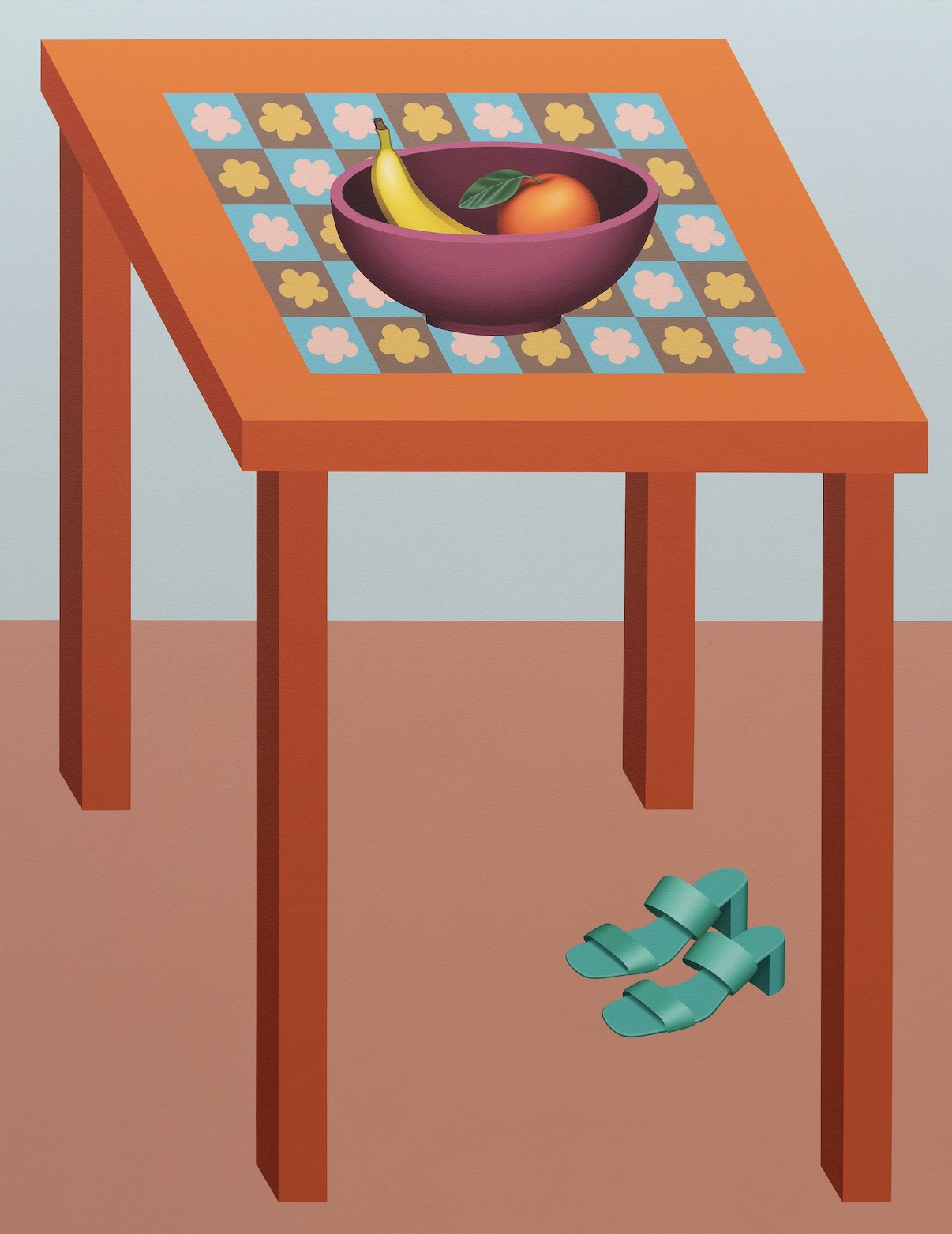
For further information peresprojects.com.
